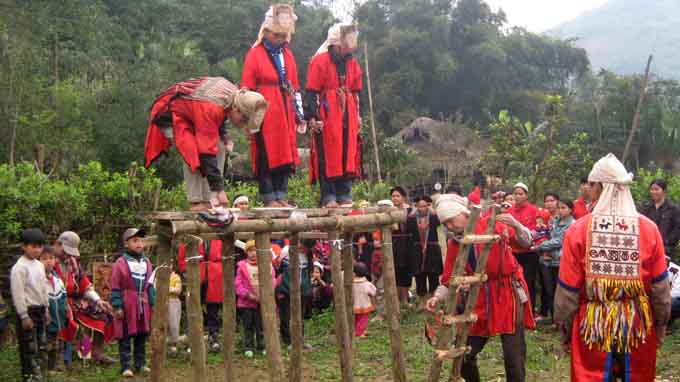Associate Professor Luong Hong Quang, deputy head of the Vietnam National Arts and Culture Institute, questions if the recognition of Vietnamese cultural relics actually helps them thrive, as the line between preservation and distortion is so delicate.
Recognizing relics at provincial, national, and international levels has become an irresistible process, with dozens of tangible and intangible relics earning new recognition each year. However, most of the newly recognized relics have undergone such massive changes in structure and content that they become alien to their original communities.
According to Quang, following the recognition is excessive government interference with the management and structure of the relics. The associate professor pointed out that though the attention helps boost the relics’ tourism potential, it disrupts the inherent structural and cultural characteristics of the relics.
A number of traditional festivals have been changed to a certain extent when they’re performed on stage. Village gatherings, once small and intimate, have grown considerably in scale and “ca tru” (northern ceremonial singing) and “quan ho” (northern folk love duets) are now no longer limited to small communities.
Relics also seriously clash with locals’ living needs, as the recognition prevents them from building new houses or making necessary repairs to their quickly deteriorating houses within or around the relic while they benefit very little from tourism. Locals in nationally recognized Duong Lam old village in Hanoi and Dong Van old town in northern Ha Giang province recently unanimously signed petitions to have their villages de-recognized for this reason.
The recognition also causes intense competition between provinces and cities that boast recognized relics and those that don’t.
Ass. Prof Quang thus urged that cultural equality and diversity should be made a priority, that is, recognition shouldn’t change the cultural value of a relic.
Researcher Bui Trong Hien is also concerned with inadequate relic preservation state policies. The country lacks standard systems regarding “static” and “moving” preservation.
According to Hien, “static” preservation is the documentation, research, and recording of intangible relics, which are then left alone. “Moving” preservation means encouraging the relic in its place of origin. For example, a traditional song would be taught and practiced in its village of origin. Each approach has its own challenges, but “moving” preservation typically benefits its village of origin more.
Ass. Prof Quang also urged that local journalists be trained specifically in writing about heritages, so that the public can be updated on the preservation of their country’s relics.



















































